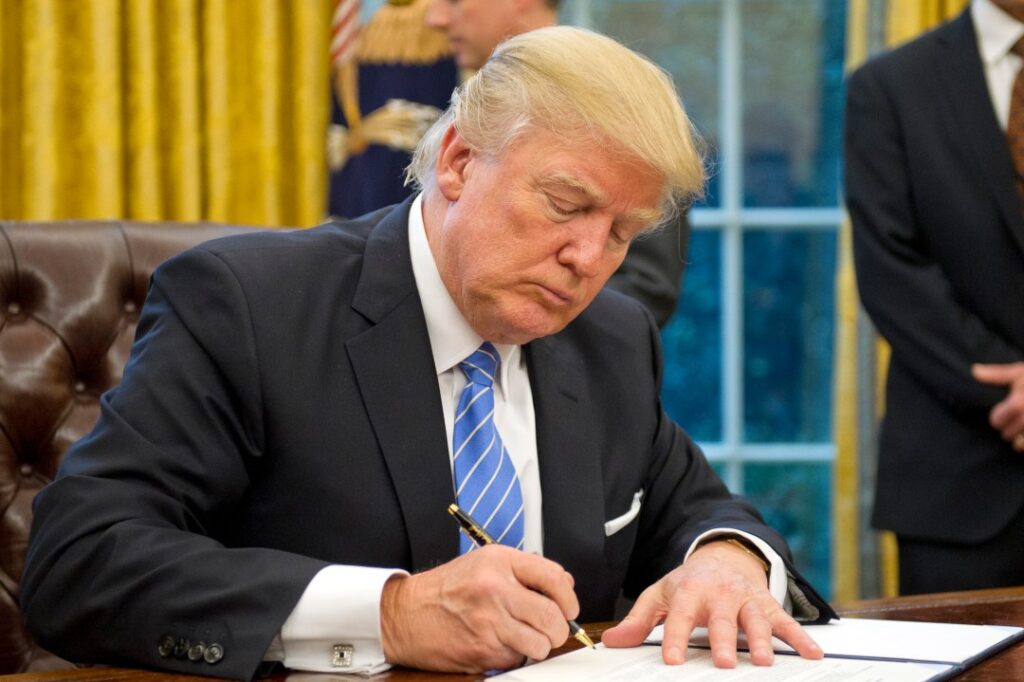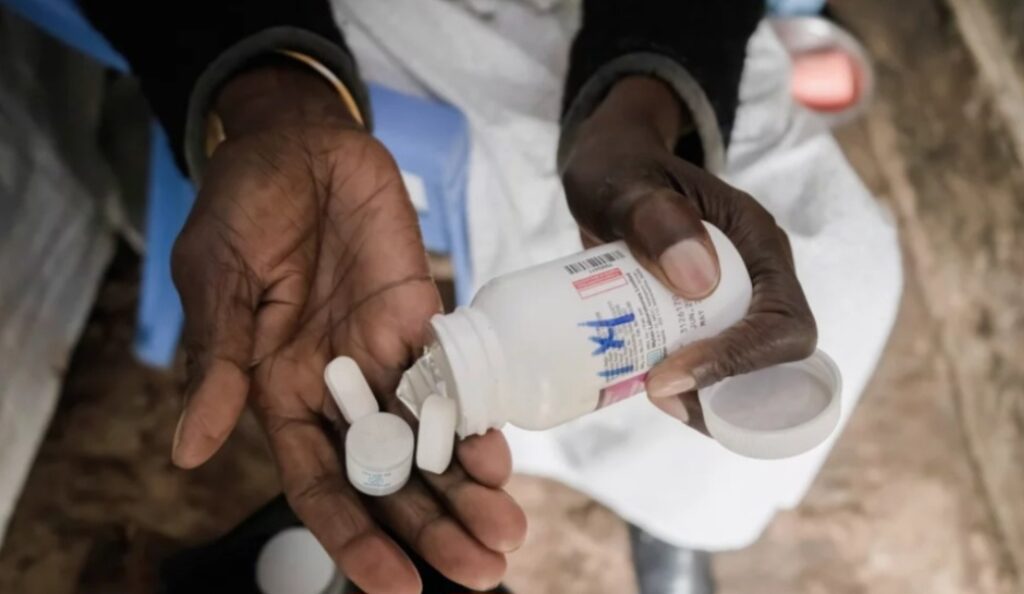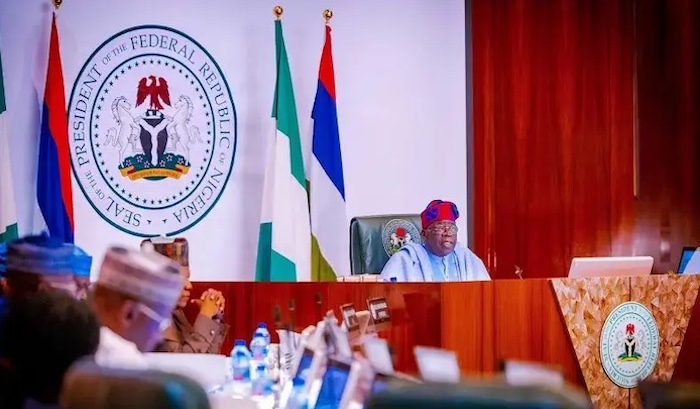Nigeria Takes Action to Secure HIV/AIDS Treatment Amid Uncertainty Over US Funding
Amid concerns over the suspension of US-funded HIV treatment programmes, Nigeria has approved ₦5 billion for the procurement of treatment packs to safeguard access to HIV care, addressing the potential impact on millions of people living with HIV/AIDS in the country.

In a move to protect Nigerians living with HIV/AIDS, the Nigerian government has approved nearly ₦5 billion for the procurement of HIV treatment packs.
This funding allocation comes in the wake of the executive order signed by President Donald Trump on his first day in office, halting foreign development assistance programmes, including disbursements from the President’s Emergency Plan for AIDS Relief (PEPFAR), a key programme for HIV treatment in Nigeria and other developing countries.
“The United States is no longer going to blindly dole out money with no return for the American people,” Trump said. Launched in 2003 by former President George Bush to combat the global HIV/AIDS pandemic, PEPFAR has become one of the largest and most successful global health commitments to address a single disease.
Over the last two decades, the programme has invested over $100 billion in the global HIV/AIDS response, saving over 25 million lives in over 50 countries, with a focus on sub-Saharan Africa, where the HIV/AIDS burden is highest. PEPFAR provides antiretroviral treatment (ART) to people living with HIV/AIDS, prevents new HIV infections, supports care and treatment for those affected by HIV/AIDS, and reduces HIV-related deaths.

The World Health Organization (WHO) expressed deep concern over Trump’s decision, warning that the suspension of funding would have dire implications for HIV programmes worldwide. WHO noted that over 30 million people worldwide will be affected and that any prolonged halt could lead to a resurgence of new infections and deaths, reversing decades of progress in HIV prevention and treatment. Globally, 39.9 million people were living with HIV at the end of 2023.
“…Such measures, if prolonged, could…[take] the world back to the 1980s and 1990s when millions died of HIV every year globally, including many in the United States of America,” WHO said in a statement seen by HumAngle.
Following a public outcry, the Trump administration made a series of controversial concessions on Jan. 29. Secretary of State Marco Rubio announced a waiver that would allow for the distribution of HIV medications. However, it remained unclear whether the waiver would extend to preventive drugs or other services provided by PEPFAR.
Regardless of the waiver, the underlying message is clear: the era of developing countries depending heavily on donor funding is coming to an end. The nations themselves must now shoulder the responsibility for HIV/AIDS treatment and prevention.
Impact on Nigeria
Nigeria, which has the highest HIV burden in West and Central Africa, is facing a particularly critical solution. With nearly two million Nigerians currently living with HIV and 1.7 million children orphaned by the disease, the country accounts for about 10 per cent of the global burden. Over the years, PEPFAR has contributed over $6 billion to support Nigeria’s national HIV/AIDS response.
The suspension or potential cessation of PEPFAR funding has created a sense of uncertainty and concern among Nigerian health officials, who fear the devastating impact on the country’s HIV/AIDS treatment programmes.
“The suspension is expected to have severe consequences for Nigeria as it would put the lives of millions of people at risk,” said Abdullahi Balogun, a medical doctor at Obafemi Awolowo University Teaching Hospital (OAUTH). “Lack of access to antiretroviral therapy, a lifesaving treatment for people living with HIV, could lead to increased morbidity and mortality rates.”

Dr Balogun warned that in the face of funding shortages, healthcare facilities may introduce user fees, making HIV services less accessible to vulnerable populations.
Voices of HIV patients
In Lagos, 42-year-old Stephen Enoch told HumAngle that his mind has been racing with thoughts of uncertainty since the announcement of the funding pause. Enoch, who relies on life-saving antiretroviral therapies to manage his condition, fears that the looming funding cuts will put his access to medication at risk.
“I don’t want to die,” he told HumAngle. “I currently do not have a job, and it would be difficult to afford antiretroviral therapies. I am due to pick up new medication in two weeks, but the prospect of funding cuts makes me uncertain.”
Another patient, who wished to remain anonymous to avoid stigma, shared similar concerns. “I have never thought that something like this would happen,” the patient said. “This funding freeze would see more new cases if nothing urgent is done about it.”
These two individuals are among the millions of Nigerians who rely on external funding to access life-saving HIV treatments. The suspension of PEPFAR funding would have devastating consequences for them, leaving them vulnerable to illness and even death.
The cost of antiretroviral therapies can vary significantly depending on the region and access to generic drugs. A recent study estimated that treatment could cost between $100 (₦149,248) to $1,000 (₦1,492,480) monthly, depending on the patient’s health status and the specific medication regimen required.
Inside Nigeria’s ₦5 billion fund
The Federal Executive Council (FEC) reportedly approved an allocation of nearly ₦5 billion (over $3 million) on Monday, Feb. 3, to procure 150,000 HIV treatment packs, to be distributed over the next four months. This aims to provide immediate relief and demonstrate Nigeria’s intent to build a more sustainable domestic financing model for health interventions.
“This allocation is critical for ensuring that those living with HIV continue to receive necessary treatments without interruption,” said Ali Pate, Minister of Health and Social Welfare, after the FEC meeting. “This is about ensuring that no Nigerian loses access to treatment during this period of adjustment.”

Pate also disclosed that FEC has set up a committee with membership drawn from the ministries of finance, budget, defence, environment, and the Nigeria Governors Forum to develop a sustainability plan for the initiative.
Until now, Nigeria has relied heavily on international assistance for its HIV programmes, particularly from PEPFAR. While the Trump administration’s policy did not directly force the Nigerian government’s hand, it has prompted the country to reassess its reliance on international aid and take ownership of its HIV/AIDS treatment programmes.
As the uncertainty surrounding PEPFAR funding continues, it has also created a sense of urgency among Nigerian health officials, who recognised the need to develop a more sustainable approach to HIV/AIDS treatment.
Meanwhile, netizens have urged authorities to monitor the latest funding initiative to avoid misappropriation, considering the country’s long history of corruption.
The Nigerian government has approved nearly ₦5 billion for HIV treatment packs following the suspension of foreign aid, including PEPFAR, by President Trump.
This decision aims to protect the nearly two million Nigerians living with HIV, amid concerns of funding cuts leading to increased morbidity and mortality rates. The WHO warned that the global pause might reverse progress in HIV treatment, affecting 30 million people worldwide.
Nigeria has heavily relied on this international assistance, but recent developments push for sustainable local funding and management of HIV/AIDS treatment programs, with a national sustainability plan underway.
Support Our Journalism
There are millions of ordinary people affected by conflict in Africa whose stories are missing in the mainstream media. HumAngle is determined to tell those challenging and under-reported stories, hoping that the people impacted by these conflicts will find the safety and security they deserve.
To ensure that we continue to provide public service coverage, we have a small favour to ask you. We want you to be part of our journalistic endeavour by contributing a token to us.
Your donation will further promote a robust, free, and independent media.
Donate HereStay Closer To The Stories That Matter




